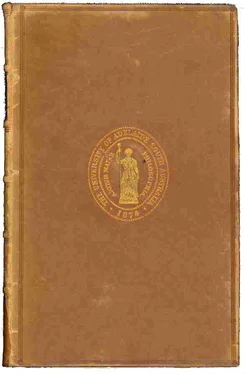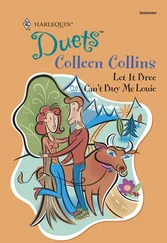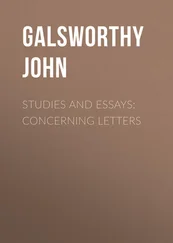Galsworthy, 1867-1933 - To Let
Здесь есть возможность читать онлайн «Galsworthy, 1867-1933 - To Let» весь текст электронной книги совершенно бесплатно (целиком полную версию без сокращений). В некоторых случаях можно слушать аудио, скачать через торрент в формате fb2 и присутствует краткое содержание. Жанр: Старинная литература, на английском языке. Описание произведения, (предисловие) а так же отзывы посетителей доступны на портале библиотеки ЛибКат.
- Название:To Let
- Автор:
- Жанр:
- Год:неизвестен
- ISBN:нет данных
- Рейтинг книги:5 / 5. Голосов: 1
-
Избранное:Добавить в избранное
- Отзывы:
-
Ваша оценка:
- 100
- 1
- 2
- 3
- 4
- 5
To Let: краткое содержание, описание и аннотация
Предлагаем к чтению аннотацию, описание, краткое содержание или предисловие (зависит от того, что написал сам автор книги «To Let»). Если вы не нашли необходимую информацию о книге — напишите в комментариях, мы постараемся отыскать её.
To Let — читать онлайн бесплатно полную книгу (весь текст) целиком
Ниже представлен текст книги, разбитый по страницам. Система сохранения места последней прочитанной страницы, позволяет с удобством читать онлайн бесплатно книгу «To Let», без необходимости каждый раз заново искать на чём Вы остановились. Поставьте закладку, и сможете в любой момент перейти на страницу, на которой закончили чтение.
Интервал:
Закладка:
Jon, who had fallen silent, said rather suddenly: “I say, this is wonderful! There’s no fat on it at all. Gull’s flight and sheep-bells —”
“Gull’s flight and sheep-bells! You’re a poet, my dear!”
Jon sighed.
“Oh, Golly! No go!”
“Try! I used to at your age.”
“Did you? Mother says ‘try’ too; but I’m so rotten. Have you any of yours for me to see?”
“My dear,” Holly murmured, “I’ve been married nineteen years. I only wrote verses when I wanted to be.”
“Oh!” said Jon, and turned over on to his face: the one cheek she could see was a charming colour. Was Jon “touched in the wind,” then, as Val would have called it? Already? But, if so, all the better, he would take no notice of young Fleur. Besides, on Monday he would begin his farming. And she smiled. Was it Burns who followed the plough, or only Piers Plowman? Nearly every young man and most young women seemed to be poets nowadays, from the number of their books she had read out in South Africa, importing them from Hatchus and Bumphards; and quite good — oh! quite; much better than she had been herself! But then poetry had only really come in since her day — with motor-cars. Another long talk after dinner over a wood fire in the low hall, and there seemed little left to know about Jon except anything of real importance. Holly parted from him at his bedroom door, having seen twice over that he had everything, with the conviction that she would love him, and Val would like him. He was eager, but did not gush; he was a splendid listener, sympathetic, reticent about himself. He evidently loved their father, and adored his mother. He liked riding, rowing, and fencing, better than games. He saved moths from candles, and couldn’t bear spiders, but put them out of doors in screws of paper sooner than kill them. In a word, he was amiable. She went to sleep, thinking that he would suffer horribly if anybody hurt him; but who would hurt him?
Jon, on the other hand, sat awake at his window with a bit of paper and a pencil, writing his first “real poem” by the light of a candle because there was not enough moon to see by, only enough to make the night seem fluttery and as if engraved on silver. Just the night for Fleur to walk, and turn her eyes, and lead on — over the hills and far away. And Jon, deeply furrowed in his ingenuous brow, made marks on the paper and rubbed them out and wrote them in again, and did all that was necessary for the completion of a work of art; and he had a feeling such as the winds of Spring must have, trying their first songs among the coming blossom. Jon was one of those boys (not many) in whom a home-trained love of beauty had survived school life. He had had to keep it to himself, of course, so that not even the drawing-master knew of it; but it was there, fastidious and clear within him. And his poem seemed to him as lame and stilted as the night was winged. But he kept it all the same. It was a “beast,” but better than nothing as an expression of the inexpressible. And he thought with a sort of discomfiture: ‘I shan’t be able to show it to Mother.’ He slept terribly well, when he did sleep, overwhelmed by novelty.
Last updated on Wed Jan 12 09:33:24 2011 for eBooks@Adelaide.
To Let, by John Galsworthy
VII Fleur
To avoid the awkwardness of questions which could not be answered, all that had been told Jon was: “There’s a girl coming down with Val for the week-end.”
For the same reason, all that had been told Fleur was: “We’ve got a youngster staying with us.”
The two yearlings, as Val called them in his thoughts, met therefore in a manner which for unpreparedness left nothing to be desired. They were thus introduced by Holly:
“This is Jon, my little brother; Fleur’s a cousin of ours, Jon.”
Jon, who was coming in through a French window out of strong sunlight, was so confounded by the providential nature of this miracle, that he had time to hear Fleur say calmly: “Oh, how do you do?” as if he had never seen her, and to understand dimly from the quickest imaginable little movement of her head that he never HAD seen her. He bowed therefore over her hand in an intoxicated manner, and became more silent than the grave. He knew better than to speak. Once in his early life, surprised reading by a night-light, he had said fatuously “I was just turning over the leaves, Mum,” and his mother had replied: “Jon, never tell stories, because of your face — nobody will ever believe them.”
The saying had permanently undermined the confidence necessary to the success of spoken untruth. He listened therefore to Fleur’s swift and rapt allusions to the jolliness of everything, plied her with scones and jam, and got away as soon as might be. They say that in delirium tremens you see a fixed object, preferably dark, which suddenly changes shape and position. Jon saw the fixed object; it had dark eyes and passably dark hair, and changed its position, but never its shape. The knowledge that between him and that object there was already a secret understanding (however impossible to understand) thrilled him so that he waited feverishly, and began to copy out his poem — which of course he would never dare to show her — till the sound of horses’ hoofs roused him, and, leaning from his window, he saw her riding forth with Val. It was clear that she wasted no time; but the sight filled him with grief. He wasted his. If he had not bolted, in his fearful ecstasy, he might have been asked to go too. From his window he watched them disappear, appear again in the chine of the road, vanish, and emerge once more for a minute clear on the outline of the Down. ‘Silly brute!’ he thought; ‘I always miss my chances.’
Why couldn’t he be self-confident and ready? And, leaning his chin on his hands, he imagined the ride he might have had with her. A week-end was but a week-end, and he had missed three hours of it. Did he know any one except himself who would have been such a flat? He did not.
He dressed for dinner early, and was first down. He would miss no more. But he missed Fleur, who came down last. He sat opposite her at dinner, and it was terrible — impossible to say anything for fear of saying the wrong thing, impossible to keep his eyes fixed on her in the only natural way; in sum, impossible to treat normally one with whom in fancy he had already been over the hills and far away; conscious, too, all the time, that he must seem to her, to all of them, a dumb gawk. Yes, it was terrible! And she was talking so well — swooping with swift wing this way and that. Wonderful how she had learned an art which he found so disgustingly difficult. She must think him hopeless indeed!
His sister’s eyes fixed on him with a certain astonishment, obliged him at last to look at Fleur; but instantly her eyes, very wide and eager, seeming to say: “Oh! for goodness’ sake!” obliged him to look at Val; where a grin obliged him to look at his cutlet — that, at least, had no eyes, and no grin, and he ate it hastily.
“Jon is going to be a farmer,” he heard Holly say; “a farmer and a poet.”
He glanced up reproachfully, caught the comic lift of her eyebrow just like their father’s, laughed, and felt better.
Val recounted the incident of Monsieur Prosper Profond; nothing could have been more favourable, for, in relating it, he regarded Holly, who in turn regarded him, while Fleur seemed to be regarding with a slight frown some thought of her own, and Jon was really free to look at her at last. She had on a white frock, very simple and well made; her arms were bare, and her hair had a white rose in it. In just that swift moment of free vision, after such intense discomfort, Jon saw her sublimated, as one sees in the dark a slender white fruit-tree; caught her like a verse of poetry flashed before the eyes of the mind, or a tune which floats out in the distance and dies.
Читать дальшеИнтервал:
Закладка:
Похожие книги на «To Let»
Представляем Вашему вниманию похожие книги на «To Let» списком для выбора. Мы отобрали схожую по названию и смыслу литературу в надежде предоставить читателям больше вариантов отыскать новые, интересные, ещё непрочитанные произведения.
Обсуждение, отзывы о книге «To Let» и просто собственные мнения читателей. Оставьте ваши комментарии, напишите, что Вы думаете о произведении, его смысле или главных героях. Укажите что конкретно понравилось, а что нет, и почему Вы так считаете.












